DRAWN TOGETHER
@ Little Space Gallery - 14 September 2017
Exhibition curators: Dr Abbey MacDonald and Jane Giblin
Opened by: Dr Megan Walch
TATA further celebrated the resurgence of life drawing practice and pedagogy in Tasmanian schools in 'Drawn Together'; a body of life drawing works from Tasmanian art teachers and TCE students, hosted at the Hobart College Little Space Gallery. 'Drawn Together' extended upon the foundation TATA teacher exhibition earlier in the year 'Body of Work', and from a series of pedagogical and practical life drawing workshops TATA councillor Jane Giblin facilitated in the north, north west and south. 'Drawn Together' showcases the outstanding standard of life drawing professional practice and pedagogy of our art teachers, and the implications our teachers' proficiency and professionalism is having for the remarkable emerging practice demonstrated by Tasmanian TCE students. We were privileged to have Dr Megan Walch join us to open the show with affirmation, cultivating future directions and ideas to continue growing into 2018. Thanks to Romany Best and and Hobart College for hosting 'Drawn Together', to TATA councillor Jane Giblin for her generosity and leadership, and to Adam Frost for his gallery technician support.
Check out the Drawn Together critical essay accompanying this exhibition.
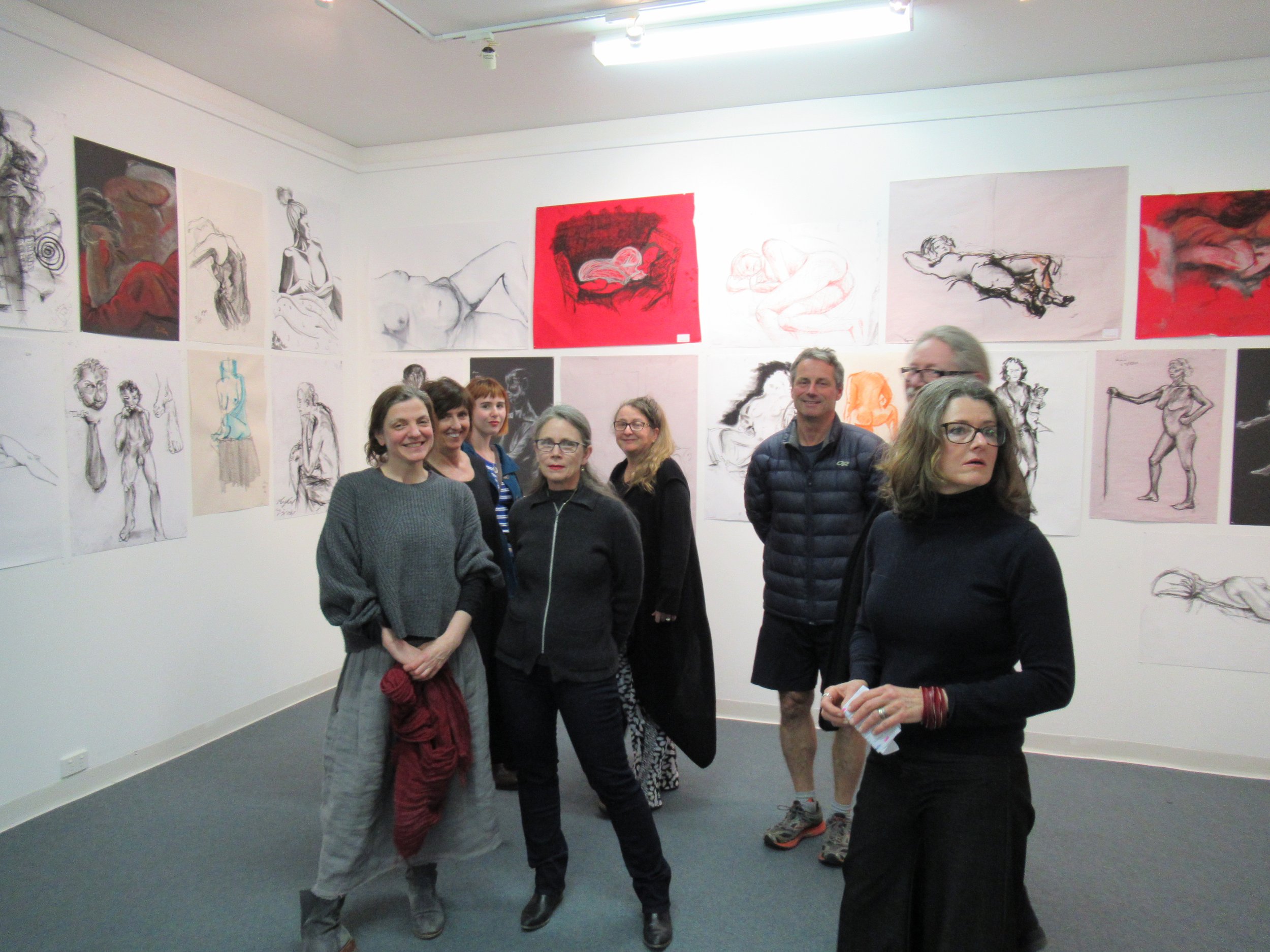
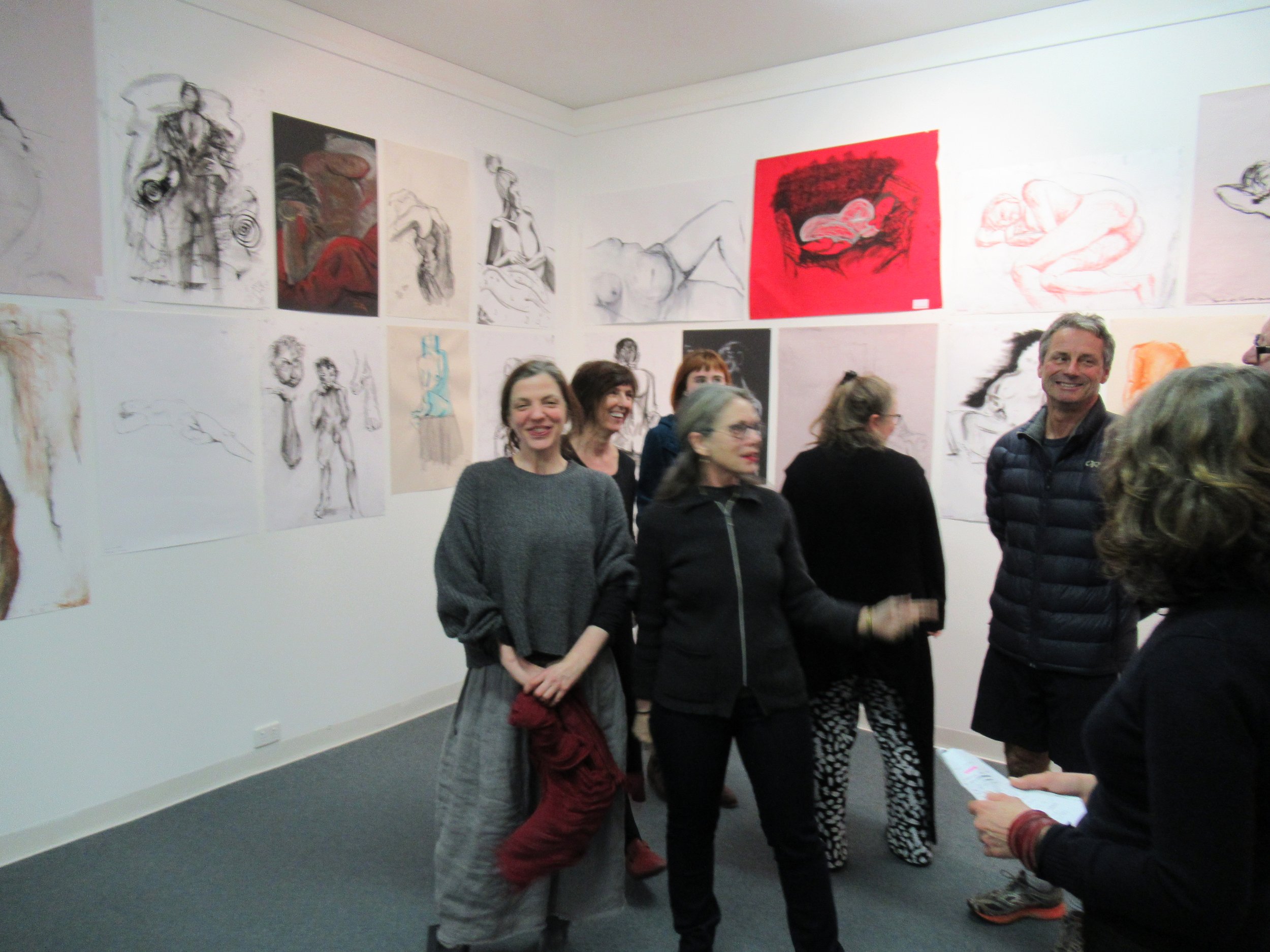


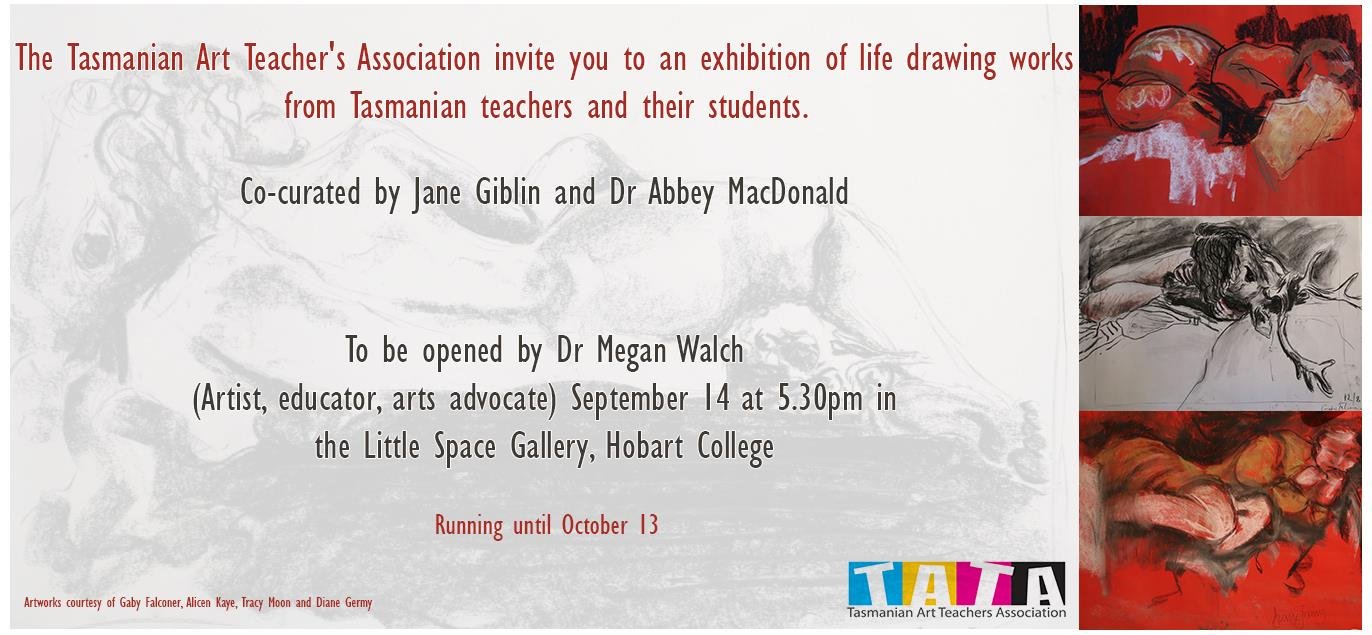

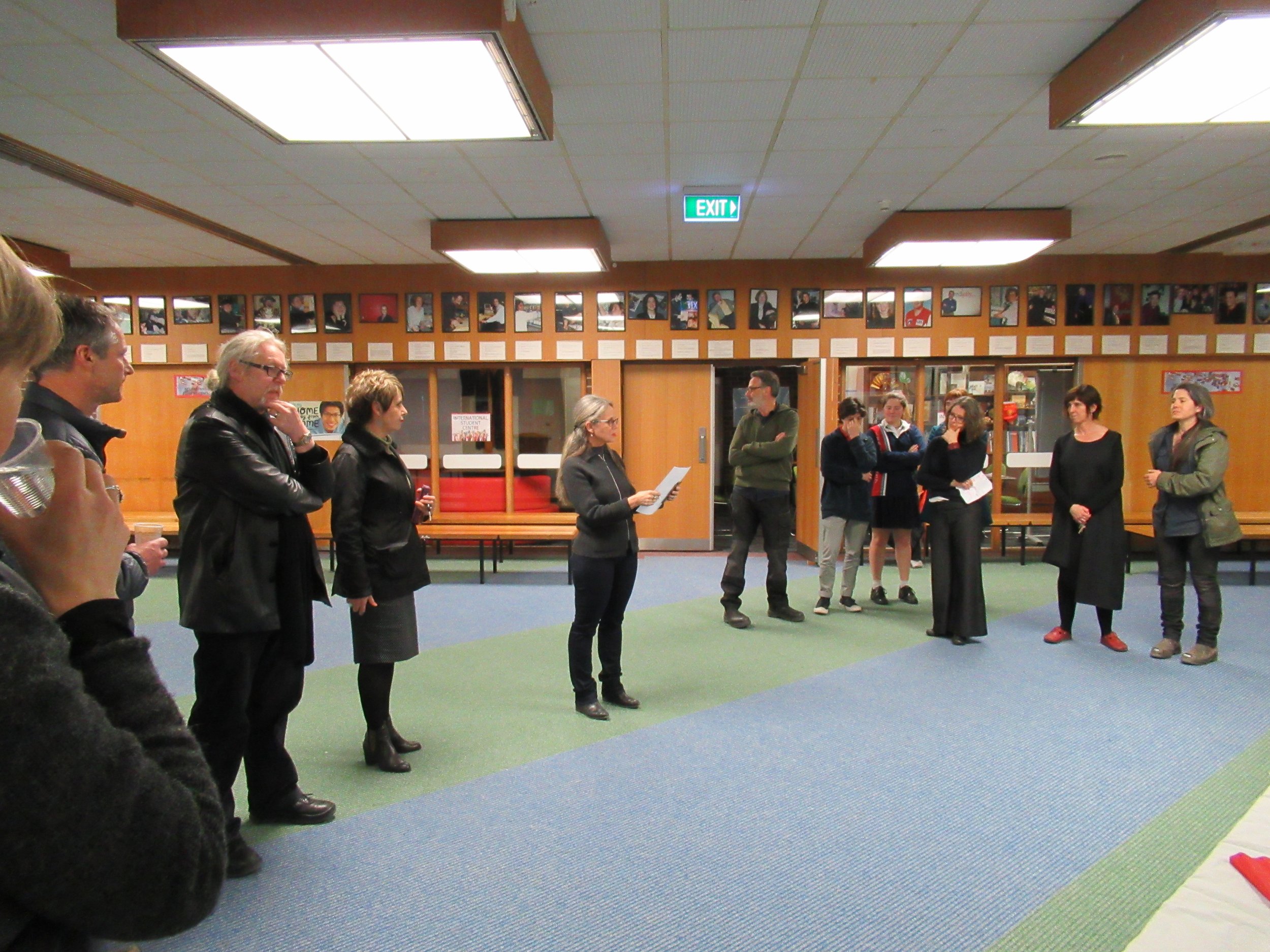

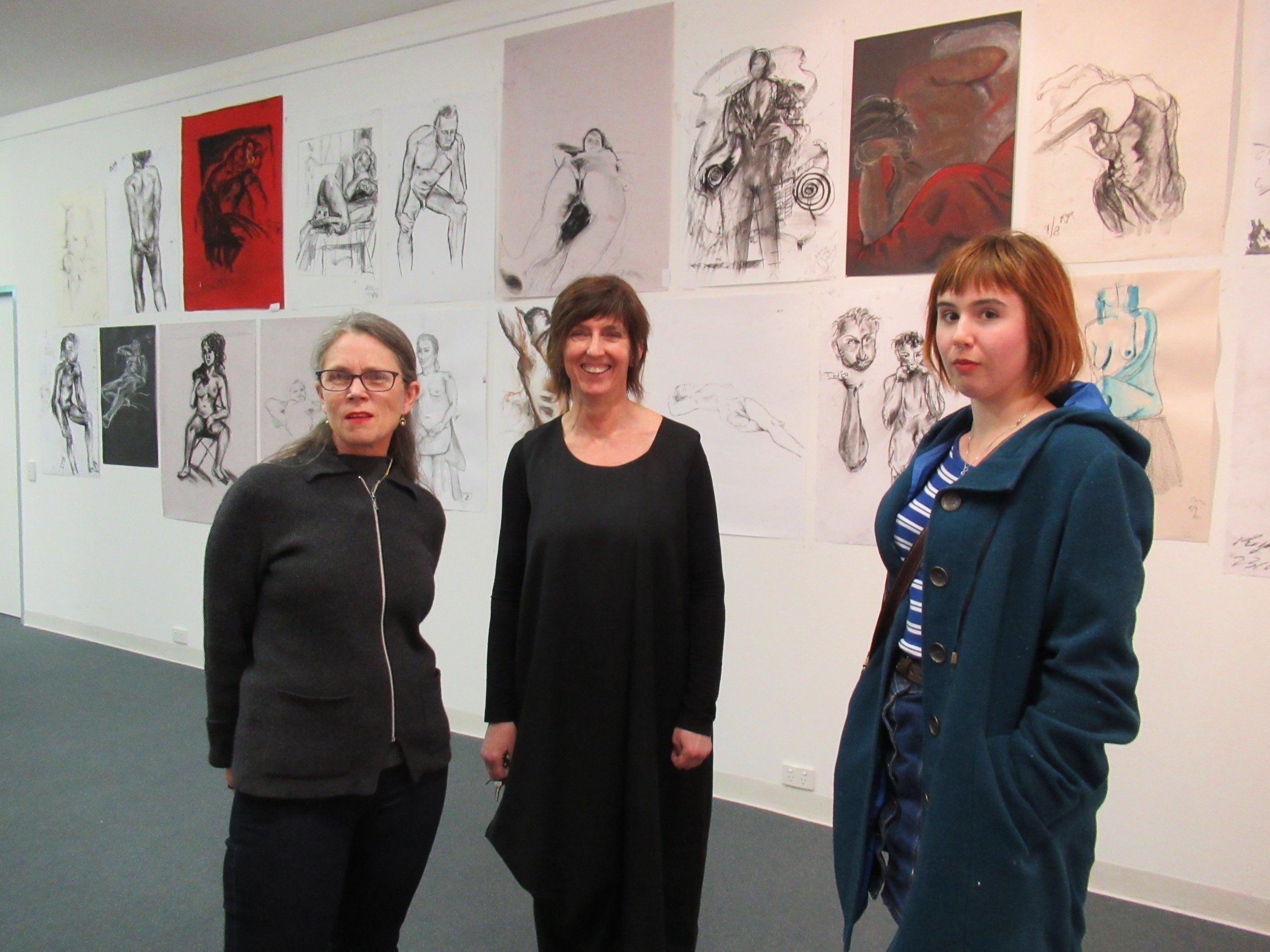

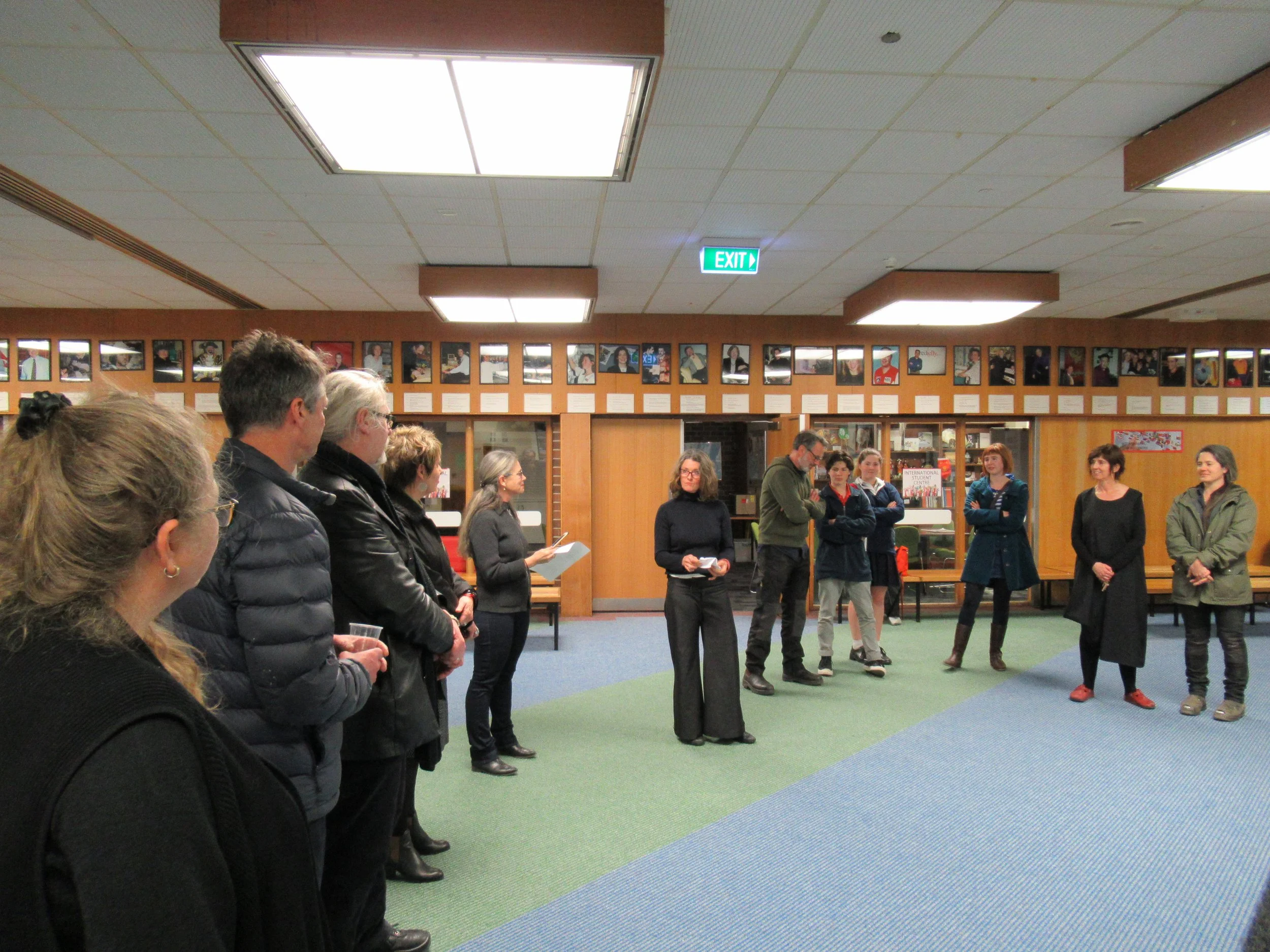

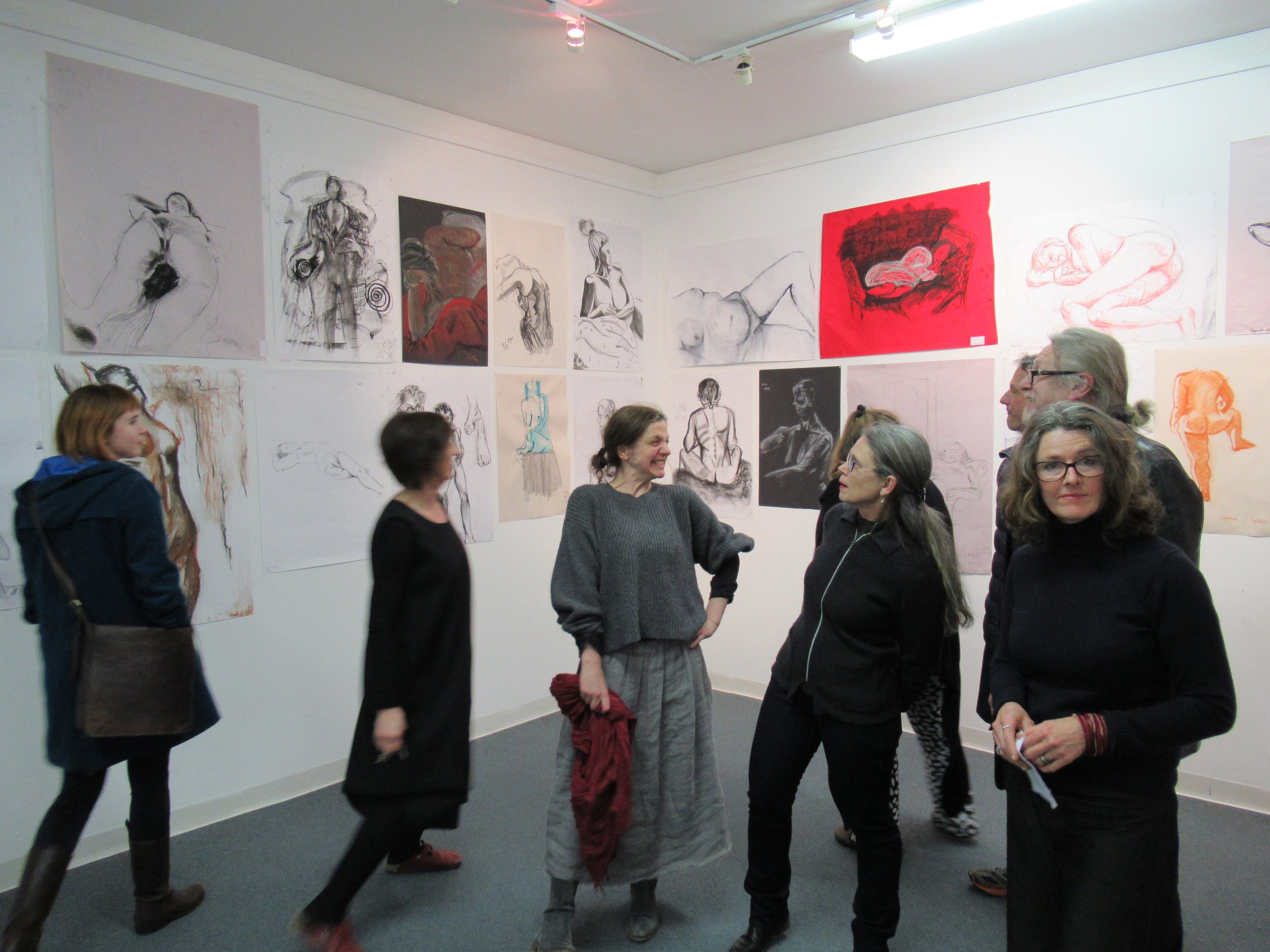
Drawn Together Critical Essay
Dr Abbey MacDonald
Embraced in this intimate space, we celebrate the resurgence of life drawing practice and pedagogy
in Tasmanian schools, drawing together a body of life drawing works from Tasmanian art teachers
and TCE students. Drawn Together emerges from a space of pedagogical learning and practice that
recognises and pays respect to the complex nature of bodies and our relationship with bodies, as
situated within the historic artistic discipline of life drawing, which continues to hold as much
relevance for learning in the visual arts today and it has done so for centuries.
The art education landscape, and indeed, the education landscape more broadly, finds itself
navigating complex challenges inside and outside of our classrooms. Teachers grapple with
navigating these challenges whilst seeking to maximise and leverage the benefits that digital
technologies, space and mediums create for learning. How bodies, and perceptions and articulations
of bodies, become implicated in this fast evolving space, is posing increasingly complex challenges
for teachers and schools to negotiate. The Tasmanian Art Teachers Association recognises how these
challenges can fuel anxiety for education administration, which in turn triggers reactive responses
that can lead to constraint or avoidance. The paradox inherent to these challenges is the increasingly
unprecedented opportunities for powerful and significant learning in and through visual art that
emerge.
Cultural anxieties have been prickled in recent decades, with associated fears grounded in long
histories of efforts to ‘protect children’i. Often glossed over in moral panics about young people is
the failure to bear in mind that ultimately, the majority of young people move into adulthood as
healthy, aware and responsible citizens. Life drawing in Tasmanian schools had found itself caught
up in a complicated cross-fire of well-intended education administration that created an exclusive
situation where authentic life drawing experiences were not accessible to and for all Tasmanian
college aged students who elected to study it within the suite of TASC visual art courseworkii. The
Tasmanian Art Teachers Association recognised the importance of education as imperative to
helping education administration stakeholders understand the historical and contemporary
significance, value and place for authentic life drawing experience as inherent to a holistic visual arts
learning experience that must be made available in equitable ways for all Tasmanian college
students who elected to experience it.
In working collaboratively with state and national education stakeholders and policy makers, the
Tasmanian Art Teachers Association embarked upon a sustained campaign throughout 2015 and
2016 to highlight to policymakers the criticality of equitable opportunities for authentic life drawing
experiences in Tasmanian colleges. The precedents for successful teaching of authentic life drawing
for year 11 and 12 students (where students engage in study of both draped and nude figure
through drawing practice) in Tasmanian colleges dates back to the early 1970’s, where life drawing
had been taught as a dedicated studio area since the establishment of the senior secondary college system. Life drawing is a verified component within TASC accredited learning in visual art, whereby
students can engage in “advanced anatomical studies including the relationship between skeleton
and muscle”iii. Drawing the human figure is arguably one of the greatest challenges for an artist,
particularly in effectively representing the muscles, tendons, and ligature of a human model. Even
small errors and ambiguities in capturing the human form can result in large distortions of the
overall resulting work.
Drawn Together showcases the outstanding quality of life drawing professional practice and
pedagogy of our art teachers, and the implications this has for the emerging practice of Tasmanian
college aged students. Among the many Arts industry and education stakeholders who lent their
expertise to our deliberations over 18 months, the Tasmanian Art Teachers Association
acknowledges with gratitude, the preparedness of our Education Minister Jeremy Rockliff to
examine our evidence and hear our argument, as it was his action that effected the necessary
change to restore equitable and inclusive opportunity for all Tasmanian college aged students to
partake in authentic life drawing learning should they wish to do so.
Research tells us that students who have the opportunity to engage in authentic life drawing
experiences where they can undertake comparative studies of the nude and draped figure are
learning how to translate the complexity of the human form from three dimensions to two
dimensions, encountering the figure as a complex arrangement of abstract formsiv. This is no way a
sexualised form of perceiving and articulating the body. Art education in Tasmania finds itself drawn
together in an exciting period of energy, purposeful growth and forward vision, where art teachers
around the state are embracing the opportunity to cultivate authentic and quality life drawing
learning experiences for our young creatives.
On behalf of the Tasmanian Art Teachers Association, art teachers and students, special thanks and
acknowledgment must go to Jane Giblin for her pedagogical leadership in and for life drawing
practice in Tasmania. Drawn Together emerged directly from a series of pedagogical and practical
workshops Jane facilitated around the state to empower teachers to connect with their own
professional practice as well as rekindle or commence life drawing offerings in school for Tasmanian
college aged students.
With gratitude and in celebration, please revel in all that is Drawn Together.
Dr Abbey MacDonald (President, Tasmanian Art Teachers Association 2017)
__________________________________
i Heins, M. (2001). Not in Front of the Children: ‘Indecency’, Censorship, and the Innocence of Youth. New York: Hill and
Wang.
ii Tasmanian Assessment, Standards and Certification [TASC] (2017). Art Production Course Delivery (Life Drawing) https://www.tasc.tas.gov.au/students/courses/thearts/
art315117/
iii Tasmanian Assessment, Standards and Certification [TASC] (2017). Art Production Course Document
http://www.tasc.tas.gov.au/4DCGI/_WWW_doc/112986/RND01/Art_Production_TQA3.pdf
iv MacDonald, A (2017). Body of Work, critical essay, Poimena Gallery, 9 June – 11 July, Launceston, Tasmania.
Exhibition artists: Tasmanian art teachers and TCE students
Exhibition dates: 14 September – 6 October
Exhibition venue: Little Space Gallery, Hobart College, 40 Olinda Grove, Mnt Nelson, Tasmania, 7007
Gallery Hours: Monday - Friday | 9AM – 5PM
Free admission
https://www.tata.org.au/drawn-together
All rights reserved. Copyright the author, artist and the Tasmanian Art Teachers Association. Except
as permitted under the Copyright Act, no part of this publication maybe reproduced by any process,
electronic or otherwise, without the permission in writing from the publisher and the author.
Neither may information be stored electronically in any form whatsoever without permission.
All opinions expressed in the material contained in this publication are those of the author and not
necessarily those of the publisher.
Catalogue: DOI 10.13140/RG.2.2.10595.66086
Edition: 50
Author: Dr Abbey MacDonald

